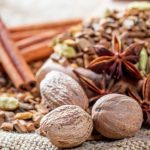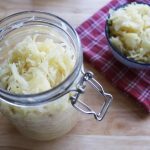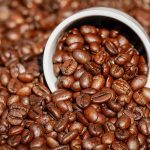By Zoey Sky (Natural News) Anyone who’s ever suffered from …read more Source: Natural News
By Heather Brinson Bruce Different parts of your skin sport different sensitivities to the world around you. If our skin were sensitive all over, we would be in big trouble. …read more Source: AIG Daily
It’s Thursday night, and I’m sitting in an airplane, about to take off for New York. I’m heading home from Las Vegas after attending Obesity Week 2019, the world’s largest obesity medicine conference, a collaboration between The Obesity Society and The American Society of Metabolic and Bariatric Surgeons. I don’t quite know how to express my feelings and thoughts about this event, but the words ‘anger’ and ‘hopelessness’ immediately come to mind. My anger and hopelessness are best exemplified by the first keynote speech, delivered by Dr. William Cefalu, who is chief scientific and medical officer of the American Diabetes [More]
By Sara Middleton, staff writer (NaturalHealth365) Greater than 3,000: that’s how many new cases of acute lymphoblastic leukemia (ALL) are diagnosed every year in the United States. According to the Centers for Disease Control and Prevention, ALL is responsible for 20% of all cancers in people younger than 20 years old. And, sadly, the Dana-Farber Cancer Institute finds that up to 1 in 5 kids who undergo chemotherapy for ALL will relapse – even if they initially receive a complete remission of the cancer. Now, new research reveals a frightening correlation: the chemotherapy itself may be responsible for many of [More]
By S.D. Wells (Natural News) Evil corporations feed Americans like …read more Source: Natural News
Lion’s mane mushroom is a medicinal food with many benefits that has been used for centuries and has now been shown to be an effective natural depression and anxiety treatment. A placebo-controlled human clinical study took 30 female patients to investigate the effects of lion’s mane on menopause, depression, sleep quality and anxiety. Of those who finished the study, 14 took a placebo and 12 took lion’s mane mushroom extract that was baked into cookies. Two grams of lion’s mane mushroom per day were consumed and after four weeks of use, a reduction in depression and anxiety were reported by [More]
By Lori Alton, staff writer (NaturalHealth365) According to the U.S. Centers for Disease Control and Prevention, close to 30 million Americans – almost one in ten – have type 2 diabetes. And, an alarming 84 million people have prediabetes – elevated blood sugar levels that can progress to diabetes (with possible complications including kidney disease, heart disease and stroke). In light of this growing epidemic – and amid the pressing need for effective, non-toxic interventions – a just-published study offers hope by showcasing the ability of clove extracts to safely lower elevated blood glucose levels. Cloves, a common …read more [More]
By Dr. Mercola A number of chemicals found in plastic products are known to act as endocrine disruptors. Some of the most pervasive and well-known include phthalates and bisphenol A (BPA). Being similar in structure to natural sex hormones, these chemicals interfere with the normal functioning of those hormones. This is particularly problematic in children who are still growing and developing, as the glands of your endocrine system and the hormones they release influence almost every cell, organ and function of your body. Your endocrine system as a whole is instrumental in regulating mood, growth and …read more Source: mercola [More]
By Dr. Mercola 1 Which of the following foods contain some of the highest amounts of leucine and glutathione, both of which are important for the prevention of sarcopenia (age-related muscle loss)? Butter Eggs Whey protein Whey protein stimulates muscle protein accretion and staves off sarcopenia, in part due to its high leucine and glutathione content. Learn more. Soy 2 Which of the following foods has been linked to the spread of urinary tract infections, and drug resistant UTIs in particular? Wild turkey Venison Factory farmed pork Factory farmed chicken Factory farmed chicken has been linked to the spread of [More]
By Lori Alton, staff writer (NaturalHealth365) It’s official: “Burnout” – the feeling of being exhausted, frustrated and overwhelmed in your life – is a real health problem that should not be ignored. So, today, we’ll show you how rhodiola can help – fast! For the first time ever, the World Health Organization has added “burnout syndrome” to its International Classification of Diseases – and some experts estimate that the condition may affect up to 70 percent of all working people. But when it comes to addressing burnout, Western medicine falls short (to say the least) – offering only limited treatment [More]
By Joy Jensen, staff writer (NaturalHealth365) Psoriasis is a chronic skin disease known for speeding up the life cycle of your skin cells. This results in the buildup of these cells on the surface of the skin, forming red, scaly patches that may be painful or itchy. And, while the signs and symptoms may vary, the most common symptoms include itching or burning skin, stiff and swollen joints, small spots of scaling skin, red patches of skin with silvery, thick scales, and cracked dry skin. Within the past few years, studies have shown a link between psoriasis and nonalcoholic fatty [More]
For decades, saturated fats like butter, lard and tallow were said to cause heart disease. Responding to such health concerns, the food industry replaced saturated fats with hydrogenated oils that are loaded with trans fats, giving rise to a whole new market of low-fat (but high-sugar) foods. Americans’ health plummeted in tandem with this systemwide change, and millions have been prematurely killed by it. As it turns out, trans fat, found in partially hydrogenated vegetable oils, acts as a pro-oxidant, contributing to oxidative stress that causes cellular damage. Trans fat is also a major contributor to insulin resistance, currently affecting [More]
By Mike Barrett It has been nearly 20 years since a new drug has been developed to combat Alzheimer’s disease. Thankfully, it won’t be another 20 years until such a feat is accomplished, as a new drug called Oligomannate has been approved for the treatment of “mild to moderate Alzheimer’s disease and improving cognitive function.” Only thing is – the approval takes place in China, and has yet to go through the proper channels to become approved by the Food and Drug Administration. ?Dementia, used to describe a decline in cognitive function and memory, is said to be one of [More]
By Dr. Mercola Every year in the U.S., approximately 795,000 people have a stroke and 140,000 die as a result, making strokes not only a leading cause of death but also a common cause of serious, long-term disability. Most often, strokes occur in those over the age of 65, but they can strike younger adults as well. In 2009, 34% of those hospitalized due to a stroke where under 65 years old, serving as a reminder that this condition may occur at any age.1 In fact, the American Heart Association says that 10% to 14% of ischemic strokes occur in [More]
By Dr. Mercola The lack of sanitation in confined animal feeding operations (CAFOs) is something I’ve written about in the past. The deplorable conditions under which the animals exist require the use of antibiotics to reduce the spread of infection. The meat and waste products from these animals are riddled with antibiotics, a practice that is a major contributor to antibiotic resistance. One of the biggest Escherichia coli (E. coli) outbreaks in 12 years ended in June 2018 after infected lettuce had affected 210 people in 36 states. It was responsible for the hospitalization of 96 and the deaths of [More]
By Dr. Mercola The news about the effects of hibiscus on high blood pressure continues to grow, offering promise to those looking for natural ways to control this common condition. I’ve written previously about the positive ways this plant can help your heart and overall health; now new research suggests that its effectiveness may be even greater than what’s been reported. I’ll explain the history, discuss the uses of the colorful flower and share tips on how to incorporate it into your overall diet so you can enjoy both its flavor and benefits. Hibiscus ‘Sour Tea’ Lowers Blood Pressure Researchers [More]
By Dr. Mercola Sally Norton,1 who has studied nutrition and has a graduate degree in public health, is one of the leading experts on oxalate poisoning — a topic you don’t hear much about. Chances are you may never have heard about oxalates, or have any idea why they might matter. As is often the case with experts in any health field, her expertise is an outgrowth of her personal struggles with health problems that didn’t respond to more conventional treatments, including healthy living (Norton was a vegetarian for 16 years). “Like so …read more Source: mercola
By Dr. Mercola Medical experts and health leaders share insights on important issues affecting your health and well-being. …read more Source: mercola
By Dr. Mercola Before the invention and distribution of artificial lighting, the sun determined when people went to bed and when they woke up. While artificial light has extended the hours you may be productive, it comes at a price as it affects health, interrupts sleep patterns and circadian rhythms and may shorten your lifespan. Digital devices are pervasive sources of artificial light. They emit high levels of blue light, which have a damaging effect on the photoreceptor cells located in the retina. This photosensitive tissue converts light into electrical signals that travel along the optic nerve to your brain, [More]
By Dr. Mercola A national investigation commissioned by Healthy Babies Bright Futures (HBBF) recently made a disturbing finding. A shocking 95% of baby foods tested contained the heavy metals lead, arsenic, cadmium and mercury.1 I have often written about how most commercial infant formulas are high in processed sugar and questionable ingredients including soy. They can contain as much sugar as a can of soda yet lack the benefits of the natural sugars found in breast milk. Worse, most formulas also contain genetically modified organisms (GMOs), synthetic vitamins, inorganic minerals, excessive protein and harmful fats while lacking vital immune-boosting nutrients [More]
A massive recall of hummus from UK supermarkets has been extended and now includes some 80 products potentially contaminated with Salmonella the country’s Food Safety Authority has warned. Dip maker Zorba Delicacies raised the alarm after discovering potential contamination in its products in the last week of October. Zorba supplies major retailers like Aldi, Lidl, Sainsbury’s, John Lewis and Iceland among others. The initial recall affected goods with a use-by date up to and including November 7 but that has now been extended by ten days to include products expiring on November 17. The full list of recalled products can [More]
The Drug Enforcement Administration issued a warning on Monday about counterfeit prescription pills, saying the pills are “killing Americans.” “Mexican drug cartels are manufacturing mass quantities of counterfeit prescription pills containing fentanyl,” according to a press release from the DEA. Twenty-seven percent of counterfeit pills seized by the DEA contain “potentially lethal doses of fentanyl,” according to the government agency. “Capitalizing on the opioid epidemic and prescription drug abuse in the United States, drug trafficking organizations are now sending counterfeit pills made with fentanyl in bulk to the United States for distribution,” said DEA Acting Administrator Uttam Dhillon in a [More]
By Joy Jensen, staff writer (NaturalHealth365) The overuse of antibiotics within modern animal food production has become a serious health issue. Conventionally speaking, food producers use antibiotics to (“hopefully”) avoid infections in their animals. But, the result is quite unhealthy, as we see the rise in antibiotic resistant bacteria. Over time, the overuse of antibiotics in animals has resulted in the development of antibiotic-resistant bacteria in meats today, which means that if humans are infected with these bacteria, conventional drug treatments are much less likely to work at all. However, new research has discovered that going organic may be the [More]
Prescription drugs help many people and even save lives. But use of prescription drugs as prescribed is also a leading cause of death in the U.S. Are some pharmaceutical companies skirting TV ad rules so that they don’t have to disclose side effects of some vaccines and other prescription medicine? Some critics say “yes.” And when I asked the FDA about the allegations, the agency told me it’s planning a new study into the issue. Below are excerpts from my Full Measure investigation with a link to the full story at the bottom. Full Measure has learned the FDA is [More]
By AdminM Cannabis in Modern Medicine by Dr. Jospeh MercolaMercola.com Dr. Allan Frankel, a board-certified internist at GreenBridge Medical in Santa Monica, California, has treated patients with medical cannabis for the past 13 years. The first time I interviewed him back in 2014, cannabis laws in the U.S. were quite different, so in this interview, he provides us with a much-needed update. Not only is recreational use of cannabis now legal in California and several other states, but hemp is also legal nationwide, thanks to a change …read more Source: Health Impact News
By Sara Middleton, staff writer (NaturalHealth365) Do you eat probiotic-rich foods? These microorganisms – found in fermented foods and supplements – offer a wide range of health benefits. At a fundamental level, they help to restore a healthy balance of friendly bacteria in your gut. But, the really good news is what happens next. A new study published in Frontiers in Pharmacology reveals a perfect example of why probiotics are so important for us. According to the August 2019 paper, the United States economy (and taxpayer funded healthcare system) could save a tremendous amount of money simply by …read more [More]
By Joy Jensen, staff writer (NaturalHealth365) For years, serious concerns have been brought to light concerning glyphosate, the main substance used in Roundup weed killer. For many years, it’s been the most widely used herbicide worldwide, but studies have continued to show it’s way more dangerous than most people can imagine. In fact, early this year, a meta-analysis showed that exposure to glyphosate increases cancer risk, despite the EPA’s current stance that the chemical is “not likely” to cause cancer in humans. In the past 30 years, glyphosate residue has continued to increase in our food supply, and at increasingly [More]






























